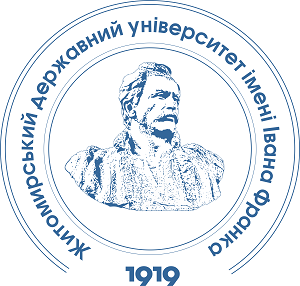PSYCHOLOGICAL RESOURCES OF THE PERSONALITY AND ITS RESILIENCY
DOI:
https://doi.org/10.32782/psy-2023-1-5Keywords:
resiliency, psychological resourcefulness, stress, overcoming stressAbstract
Modern world psychology has been actively researching the phenomenon of resilience for the last quarter of a century, and it is already possible to single out specific directions of this scientific search: defining the essence of resilience as a property of an individual, his special mental state, and resilience as a certain process; resilience in the context of stressful and psychodramatic events; resilience in the process of adjustment and positive adaptation to stressful situations; resilience and post-traumatic growth; resilience and adaptive coping; resilience as a psychological resource, trajectory of resilience and others. Our attention was drawn to the aspect of the manifestation of resilience as a psychological resource of the individual because experiencing the stress caused by the war requires the individual to use his resources to ensure his life activities in all its aspects. The resource approach in psychology makes it possible to pay attention to the mental forces that give a person an opportunity to master a stressful situation and quickly adapt to the life conditions caused by it. It is about what S. Hobfall called personality resources and described them as a whole system. In later studies, S.O. Lukomska continues to develop the idea of the unity of personal and social resources of a person, which is manifested in stressful situations, one of the most important consequences of the use of the resource system is vitality, posttraumatic growth, and resilience of the individual. The research by O.S. Shtepа expands the vision of the essence of resources and introduces the concept of psychological resourcefulness, the content of which is considered broader. It is «an indicator of the balance and constructiveness of a person's living in stressful situations» as well as «a sign of the potential of a person who can treat life situations as certain opportunities for self-development». In general, it refers to the experience of actualizing one's personal and existential resources to independently develop and provide support to other people, as well as to use one's resources (to be aware of them, to be able to use and update them).
References
Hobfoll S. E. Social and psychological resources and adaptation. Review of General Psychology. 2002. Vol. 6(4). P. 307–324.
Лукомська С. О. Ресурсний підхід до подолання особистістю кризових ситуацій. Науковий вісник Херсонського державного університету. Серія Психологічні науки. 2020. Вип. 1. С. 190–196.
Кіреєва З. О. Предиктори резильєнтності та оптимізму у осіб різного віку під час проживання пандемії SARS-СOV-2. Науковий вісник Херсонського державного університету. Серія Психологічні науки. 2022. Вип. 1. С. 5–10. http://nbuv.gov.ua/UJRN/nvkhp_2022_1_3.
Штепа О. С. Аналіз та інтерпретація емпіричної багатофакторної моделі психологічної ресурсності особистості. Проблеми сучасної психології. 2015. Вип. 28. С. 670–682.
Лапіна M. Д. Психологічні ресурси особистості в професійній діяльності соціального працівника. Теорія і практика сучасної психології. 2019. № 1. Т. 1. С. 62–66.
Грішин Е. О. Резилієнтність особистості: сутність феномену, психодіагностика та засоби розвитку. Вісник ХНПУ імені Г. С. Сковороди. Психологія. 2021. Вип. 64. С. 62–81.
Лазос Г. П. Теоретико-методологічна модель резильєнтності як основа побудови психотехнології її розвитку. Організаційна психологія. Економічна психологія. 2019. № 2-3(17). С. 77–88.
Ассонов Д. О. Розвиток концепції резилієнсу в науковій літературі протягом останніх років. Psychosomatic Medicine and General Practice. 2019. № 4(4). – e0404219-e0404219. https://doi.org/10.26766/pmgp.v4i3-4.219.






